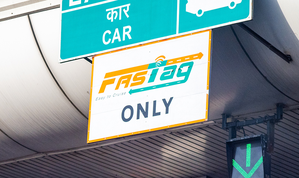US, India reveal roadmap to build secure global clean energy supply chain
New Delhi, Sep 22 (IANS) The $1 billion India-US initiative to build a safe and secure global clean energy supply chain aims to capture the benefits of the clean energy transition, including the creation of high-quality jobs, acceleration of clean energy deployment and achievement of global climate goals, the government said on Sunday.
The funding will support supply-side manufacturing capacity expansion for key technology verticals, focusing on solar, wind, battery, energy grid systems, and high-efficiency air conditioner and ceiling fan supply chains.
“As an important aspect of our economic growth agendas, we are committed to working together to capture the benefits of the clean energy transition,” said the government after the meeting between President Joe Biden and Prime Minister Narendra Modi during the sixth Quad Leaders’ Summit in Wilmington, Delaware.
Both the countries aim to expand manufacturing capacity for clean energy technologies and components and lay the groundwork for enhanced cooperation in third countries, with a focus on partnerships in Africa.
The effort will build on existing clean energy cooperation between the US and India, including clean energy initiatives launched during Prime Minister Narendra Modi’s visit to the United States in 2023, the Strategic Clean Energy Partnership led by the US Department of Energy and Government of India ministries, technical assistance provided by US laboratories, and novel financial platforms such as the Payment Security Mechanism established to support the rapid deployment of electric buses in India.
The US and India are working to unlock $1 billion in new multilateral finance through the International Bank for Reconstruction and Development (IBRD) for projects that include catalysing India’s domestic clean energy supply chain buildout.
“Over time, we seek to mobilise additional financing into priority clean energy manufacturing sectors that harness public and private financial tools and pioneer innovative financial vehicles to meet the rapid demand for flexible climate finance solutions,” the government informed.
Both the governments pledged to work with industry leaders, with initial focus on solar wafers and wafer manufacturing equipment and next generation solar cells, wind turbine nacelle components, power transmission line components including conductors, cabling, transformers, and next generation technologies, energy storage components including batteries, battery packs for 2- and 3-wheel electric vehicles (EVs) and zero-emission e-bus and truck components and high-efficiency air conditioners and ceiling fan components.
They also committed to collaborate with the private sector to support an initial package of pilot projects, ideally including one project focused on clean energy deployment to Africa.
–IANS
na/




